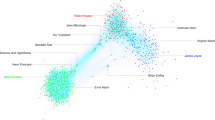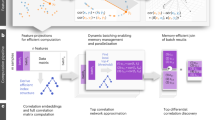Abstract
This article examines the relationship between Open Access to the scholarly literature and innovation. It traces the ideas of "end to end" network principles in the Internet and the World Wide Web and applies them to the scholarly biomedical literature. And the article argues for the importance of relieving not just price barriers but permission barriers.
Similar content being viewed by others
Article PDF
Author information
Authors and Affiliations
Corresponding author
Rights and permissions
About this article
Cite this article
Wilbanks, J. The Control Fallacy: Why OA Out-Innovates the Alternative. Nat Prec (2008). https://doi.org/10.1038/npre.2008.1808.1
Received:
Accepted:
Published:
DOI: https://doi.org/10.1038/npre.2008.1808.1



